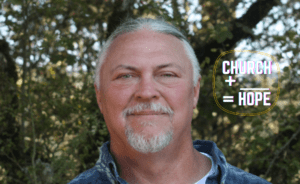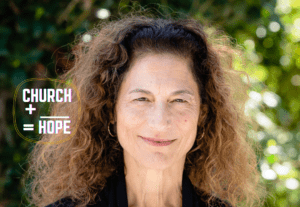Lately I’ve been having great conversations with straight cisgender Christians who ask how they can best support the LGBTQ+ Christian community. These are important questions, and I’ve been hearing more and more innovative, contextual ideas. As a catalyst to this ongoing conversation, consider the following suggestions…
 1. Open up your homes.
1. Open up your homes.
There so many members of the LGBTQ+ Christian community who need housing right now. Some have come out in Christian contexts and have been kicked out of their homes or have become unwelcome among their housemates. They are couch-surfing, using shelters, or shuffling from one short-term rental to another. Many times these experiences contribute to struggles with depression, loneliness and shame.
They’re not simply looking for a room to rent–they’re looking for a home, a place of safety and belonging. They want a place where their faith will be affirmed and supported, where their ongoing journey with their sexuality and/or gender identity will not be judged but rather given space and treated with humility and respect.
Do you have a suite or room in your home that you could rent to someone in this situation? Let the folks at Q Christian Fellowship know that you’re looking to help in this way; they can share your offer with local groups around the country. If you don’t have a spare bedroom, you could still combat isolation and loneliness by setting up a weekly or monthly time when you invite a single LGBTQ+ friend to cook with you and share in your family meal.
2. “Out” yourself as an advocate.
Seven years ago, I remember agonizing over which people in my life would be safe “first people” for me to come out to, considering my vulnerable, fragile state. I was so afraid of people reacting with disgust, dismissal, knee-jerk advice, canned platitudes, or anything that would reduce my complex real-life experience to an abstract theological or political issue. I wanted people who would listen non-anxiously, respect my confidentiality, and reassure me that they loved me and intended to walk through this alongside me. In other words, I was seeking advocates.
Closeted LGBTQ+ Christians have extremely sensitive antennae. They are watching what you post on Facebook. They are listening to your contributions to conversations about sexuality and all sorts of other controversial issues, noticing your tone, posture, and especially how you treat people who disagree with you. They are picking up on every mention of your LGBTQ+ friends. And it’s not only LGBTQ+ people who are paying attention: Other straight, cisgender people in your church are looking for people with whom they can discuss questions of sexuality and gender without fear of judgment, without feeling pressured to simply toe the party line.
When I was coming out, I wasn’t looking for people who would tell me what to think about same-sex sex. I just wanted people who would commit to loving me no matter what ethical conclusions either of us ended up coming to.
So here is my challenge to you: Come out as advocates! Intentionally seed your online and in-person conversations with clues to reveal that questions of faith, sexuality and gender are on your radar, that you approach them as a humble learner, and that the lived experiences of LGBTQ+ people deeply matter to you. It may be costly to “out” yourself in this way, causing some of your friends and family to wonder whether you’re on a “slippery slope,” but this, too, will be beneficial to you as a (small, nonequivalent) taste of what LGBTQ+ people might feel like when they come out of the closet.
(Quick note: no matter if your views on same-sex intimacy are traditional, affirming, or uncertain, you can be an advocate! When I was coming out, I wasn’t looking for people who would tell me what to think about same-sex sex. I just wanted people who would commit to loving me no matter what ethical conclusions either of us ended up coming to.)
3. Amplify LGBTQ+ voices.
Last May, my wife and I were invited to preach a sermon together at our church. On the whole, this was an encouraging experience. Our church family warmly welcomed our message and affirmed our gifts. The only tough moment was at the beginning of the service, right after a deacon introduced us as preachers and gave some background information about us. At that point, three women who seemed to be visitors at the church made a conspicuously noisy departure, presumably because they didn’t want to listen to gay married women preach, or even worship in a church that would give us a platform. It’s hard to describe how it feels when someone refuses to listen to you on principle, before you even open your mouth.
Some people aren’t yet willing to listen to an LGBTQ+ Christian preach, but they would be willing to listen to a story that you, a straight, cisgender person, might relay about your LGBTQ+ friend’s journey of faith. In the privacy of their homes, they might even be willing to watch a video you posted in which two LGBTQ+ Christians discuss their experiences and interpretations of Scripture. They might not be willing to befriend an LGBTQ+ Christian, but if you shared an LGBTQ+ Christian’s blog post on your Facebook wall, they might read it. (See below for a list of great LGBTQ+ Christian blogs to follow). Slowly, they may find their hearts becoming more open to listening to those they once excluded categorically.
Allies can often fall into the trap of using issues they care about as an opportunity to broadcast their own opinions and boost their own egos. Counteract this human tendency by disciplining yourself to pass the microphone as often as possible to someone in the minority group, rather than paraphrasing them. As a bonus, when you amplify LGBTQ+ voices, you are also simultaneously outing yourself as an advocate (see #2!).
Straight cisgender Christians, these are only some of the ways you can support LGBTQ+ Christians like me.
I welcome LGBTQ+ people to comment below with their own ideas… what are some of the ways that straight, cisgender Christians have loved and supported YOU?
Addendum: LGBTQ+ Christians who blog about theology & sexuality
- Brent Bailey……………………………………gay Christian MDiv student
- Candice Czubernat ………………………married gay Christian web-based therapist at The Christian Closet
- Dianna E. Anderson……………………….author of Damaged Goods, writes about purity culture and bisexuality
- Justin Lee ………………………………………author of Torn, founder of the Gay Christian Network
- Justin Massey & Nathan Barber…….. two gay Christian students at Wheaton College
- Lindsey & Sarah……………………………..celibate queer couple who blog frequently and thought-provokingly
- Lisa Salazar…………………………………….author of Transparently, an inspiring transgender Christian
- Matthias Roberts…………………………….another talented gay Christian who does a terrific podcast called Queerology
- Spiritual Friendship…………………………a rich resource from a community of celibate Christian bloggers
- My own blog!
Beth Malena works with the Toronto-based ministry New Direction, where she offers pastoral care and facilitates connections and understanding between LGBT Christians, their families, and their churches. She is also an Oriented to Love alumnus. (This post originally appeared on the New Direction blog and appears here by kind permission of the author.)


